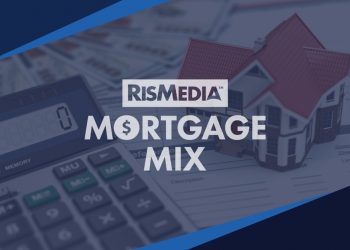RISMEDIA, August 6, 2008-The California Association of Realtors® (C.A.R.) applauds President Bush’s decision to sign H.R. 3221 into law. For the past several years, C.A.R. and the National Association of Realtors® have aggressively lobbied for Congress to pass numerous provisions found in this historic bill.
The legislation, called the Housing and Economic Recovery Act of 2008, will assist an estimated 400,000 homeowners facing foreclosure, many of whom reside in California, by allowing them to refinance their current mortgages with a Federal Housing Administration (FHA)-backed loan. The bill also will permanently increase FHA, Fannie Mae, and Freddie Mac loan limits in high-cost areas.
“This federal housing bill is a significant move in the right direction for California homeowners,” said C.A.R. President William E. Brown. “It will aid in stabilizing our economy and help stem foreclosures, while also providing support to first-time homeowners.”
The bill permanently increases the conforming loan limit to $625,500. C.A.R. has long advocated for higher conforming loan limits. In February, the Economic Stimulus Act of 2008 was signed, temporarily raising the conforming loan limit in high-cost areas to $729,750 from $417,000 until December 31, 2008.
“Although we would have liked Congress to make permanent the current $729,750 loan limit, C.A.R. is pleased with the new permanent loan limit of $625,500. It will allow California homeowners to refinance their loans into safe affordable loan products and allow first-time home buyers to enter the market,” said Brown.
The new loan limits for Fannie Mae and Freddie Mac are the greater of either $417,000 or 115% of an area’s median home price, up to $625,500. The new FHA loan limit will be the greater of $271,050 or 115% of an area’s median home price, up to $625,500. Both new loan limits will be effective at the expiration of the economic stimulus limits on December 31, 2008.
C.A.R. also supports the following bill provisions:
. A temporary increase in mortgage revenue bonds to refinance subprime mortgages.
. New regulator for Government Sponsored Enterprises to restore investor confidence in GSE loans and help the market and economy stabilize.
. First-time home buyer tax credit, which allows first-time home buyers to receive a tax refund worth up to 10% of a home’s purchase price, up to a maximum of $7,500. The refund serves as an interest-free loan and the homeowner is required to repay it in equal installments over 15 years.
. Temporary raise in the loan limit for the Veterans Affairs home loan guarantee program to the same level as the economic stimulus limits until the end of 2008.
. Adjustment to the Foreign Investment in Real Property Tax Act of 1980 (FIRPTA), allowing sellers to provide the non-foreign affidavit to a qualified closing entity and not just the buyer.
. The setting of minimum requirements for mortgage originators, which mandates fingerprinting of loan originators and establishes a nationwide loan originator licensing and registration system. The requirements do not apply to those only performing real estate brokerage activities unless they are compensated by a lender, mortgage broker, or other loan originator. States will have the ability to implement more stringent laws.
. The creation of a National Affordable Housing Trust Fund to help cover the cost of the FHA rescue plan for the first five years and develop affordable housing in subsequent years.
Other provisions in the legislation include:
. The Treasury Department’s proposal to create a federal backstop program to ensure the financial well-being of Fannie Mae and Freddie Mac.
. The FHA’s inability to insure loans that utilize a seller-funded down-payment assistance program. Down-payment assistance from family, employers and other nonprofits is still allowed.
. The Community Development Block Grant Programs’ $4 billion allotment for communities to purchase and refurbish foreclosed homes.
For more information, visit www.car.org.










